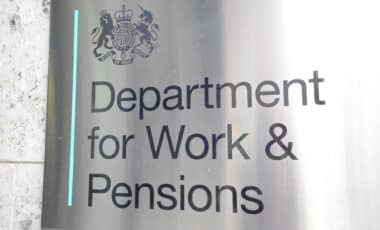The government’s proposed cuts to disability benefits have sparked controversy as Labour updates its stance on the issue following a partial reversal of its position on the Winter Fuel Payment. Chancellor Rachel Reeves announced that more people will qualify for the Winter Fuel Payment, widening eligibility with a £35,000 income threshold.
This development has intensified calls for the government to reconsider other planned cuts, particularly to the Personal Independence Payment (PIP) and incapacity payments.
The Labour Party has been under increasing pressure from both backbenchers and opposition MPs to halt the proposed reforms to disability benefits. With an eye on securing better support for those unable to work, Labour has been cautious in its response.
However, the government’s latest announcement on the Winter Fuel Payment has raised hopes that it may be willing to reconsider other policy changes, particularly those affecting vulnerable groups.
Increased Pressure Following Winter Fuel Payment U-Turn
Following the Winter Fuel Payment announcement, Labour MPs are ramping up their demands for a rethinking of other cuts. According to Rachel Reeves, the aim is to increase economic activity among those of working age who are currently inactive, including people with disabilities.
Reeves stated that the government’s reforms are necessary to help people find fulfilling work. However, some MPs, including Nadia Whittome and Richard Burgon, have expressed concern that tightening PIP eligibility may harm disabled individuals.
Whittome, in particular, warned the government about making the same mistake twice. “I’m simply asking him not to cut disabled people’s benefits,” she told Pensions Minister Torsten Bell during a House of Commons debate.
Whittome stressed that while Labour supports helping individuals back into work, it should not come at the expense of cutting support for those who need it the most. This plea for reconsideration comes as the government plans to make it more difficult for people to qualify for PIP from November 2026.
The Pathways to Work Green Paper outlines that people will need to score at least a four in daily living assessments to qualify, which could potentially exclude many who currently rely on the benefit. The cuts also extend to incapacity payments, which are set to be frozen for existing claimants and reduced for new recipients.
The Broader Implications of Disability Benefit Cuts
The proposed cuts to PIP and incapacity payments are seen by some as part of a wider strategy to encourage people to return to work, but they could leave vulnerable individuals with limited financial support.
According to Rebecca Long-Bailey, Labour MP for Salford, the two-child cap on Universal Credit, alongside reductions in disability payments, could leave families in precarious financial situations. Long-Bailey called for the two-child cap to be scrapped, arguing that lifting children out of poverty must be a top priority.
In a House of Commons debate, the opposition raised the possibility of further U-turns on PIP and other welfare policies, with Liberal Democrat MP Mike Martin predicting more changes ahead.
With increasing dissent within Parliament, the government may face further pressure to adjust its approach to disability support, making it a critical issue for the future of welfare reform in the UK.









